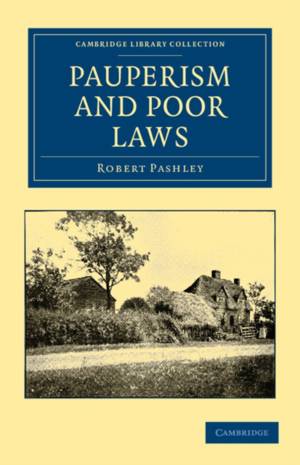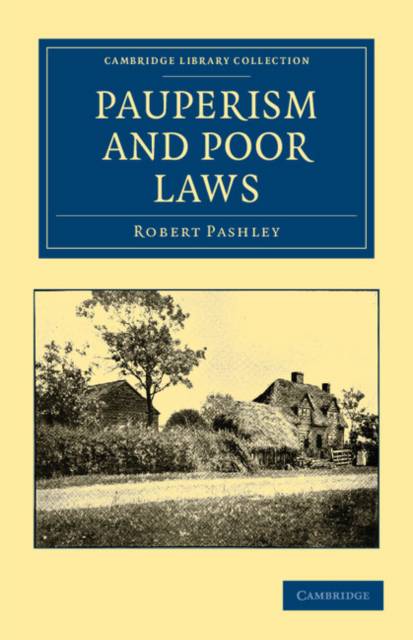
- Afhalen na 1 uur in een winkel met voorraad
- Gratis thuislevering in België vanaf € 30
- Ruim aanbod met 7 miljoen producten
- Afhalen na 1 uur in een winkel met voorraad
- Gratis thuislevering in België vanaf € 30
- Ruim aanbod met 7 miljoen producten
Zoeken
Omschrijving
Robert Pashley (1805-59), lawyer, economist, traveller, and fellow of Trinity College, Cambridge, is famous for his travel memoirs as well as his legal achievements. First published in 1852, his history of pauperism and the poor laws in England analyses the history of poverty and the various attempts at reform, including legislation in the reign of Elizabeth I, the statute of Charles II for the Removal of the Poor, and the pauper legislation of 1834. In the final chapters, Pashley asserts the necessity for a total repeal of the existing legislation, including the Poor Law Amendment Act of 1834, arguing that the provisions for raising and administering relief to paupers should be consolidated into one statute and suggesting a national levy on property to aid poor relief. Pashley's work was influential, although reform of the system did not begin until the creation of the Local Government Board in 1871.
Specificaties
Betrokkenen
- Auteur(s):
- Uitgeverij:
Inhoud
- Aantal bladzijden:
- 442
- Taal:
- Engels
- Reeks:
Eigenschappen
- Productcode (EAN):
- 9781108037006
- Verschijningsdatum:
- 8/12/2011
- Uitvoering:
- Paperback
- Formaat:
- Trade paperback (VS)
- Afmetingen:
- 140 mm x 216 mm
- Gewicht:
- 557 g

Alleen bij Standaard Boekhandel
+ 190 punten op je klantenkaart van Standaard Boekhandel
Beoordelingen
We publiceren alleen reviews die voldoen aan de voorwaarden voor reviews. Bekijk onze voorwaarden voor reviews.







